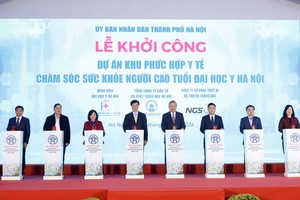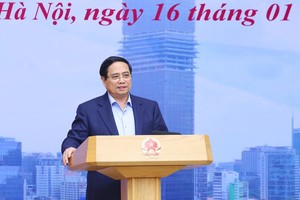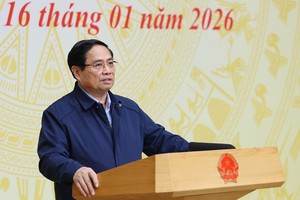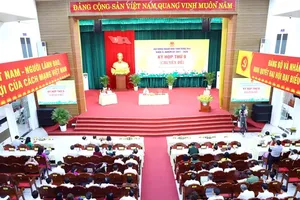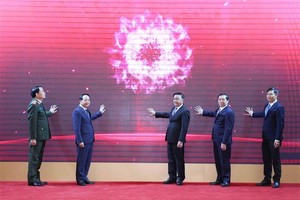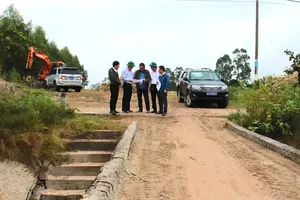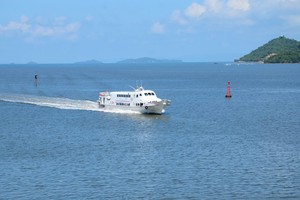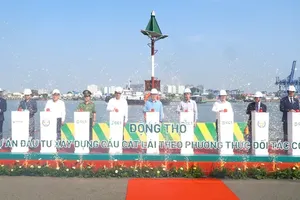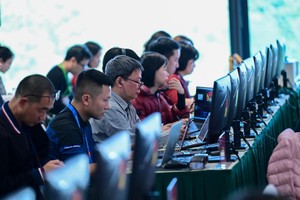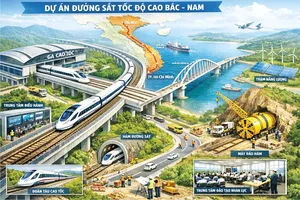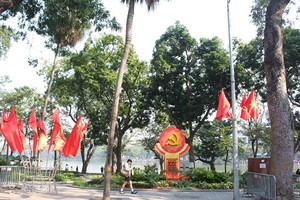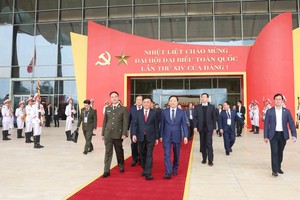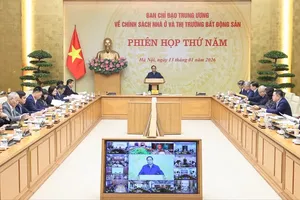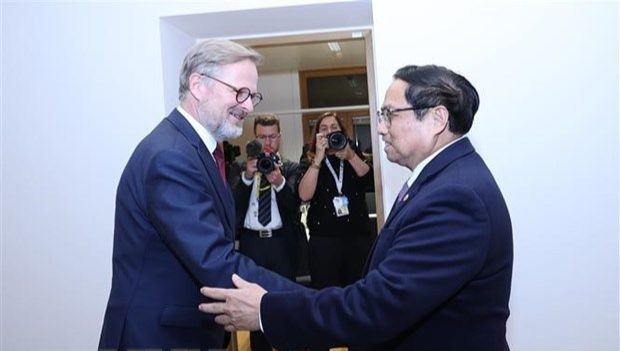 |
Prime Minister Pham Minh Chinh (R) meets Czech PM Petr Fiala on the sidelines of the ASEAN–EU Summit in December 2022 (Photo: VNA) |
The visit, made at the invitation of Prime Minister Pham Minh Chinh, takes place in the context that the traditional friendship and multifaceted cooperation between Vietnam and the Czech Republic are developing well.
Traditional partnership
Vietnam and the Czech Republic set up their diplomatic ties on February 2, 1950. Since then, the Czech Republic has always implemented a policy of developing cooperative relations with Vietnam in all fields.
The two sides maintain regular contacts at all levels. Recently, PM Chinh met PM Petr Fiala on the sidelines of the ASEAN–EU Summit in December 2022; and previously, in August 2021, they held phone talks.
The two countries have signed 14 cooperation agreements in all fields, including those on trade, bilateral payment and debt repayment, investment encouragement and protection, avoidance of double taxation, and economic cooperation. Notably, the two sides signed a Memorandum of Understanding on defence-security cooperation in 2012.
In addition, the two countries have closely coordinated at international and regional multilateral forums. The Czech Republic supported Vietnam's candidacy for the position as a non-permanent member of the United Nations Security Council for the 2020-2021 term, and was one of the first EU member states to ratify the EU-Vietnam Free Trade Agreement (EVFTA), and the EU-Vietnam Investment Protection Agreement (EVIPA).
Extensive economic-trade cooperation
The development and international integration of the two economies have created favourable conditions for bilateral cooperation in economics, trade and investment.
Two-way trade has grown in recent years but is still modest compared to the two countries’ potential. The turnover reached US$848 million in 2022, up 15% year-on-year.
Regarding investment, the Czech Republic has 41 FDI projects in Vietnam with a total capital of US$92 million, mainly in the processing, manufacturing and mining.
In terms of development cooperation, the Czech Republic was the first Eastern European country to provide ODA to Vietnam, with about US$20 million in total.
Since 2013, it has not placed Vietnam in the list of ODA development aid recipients due to the country’s economic development progress.
Promoting cooperation in other aspects
Education and training is another potential field for cooperation between the two countries. The two sides have made great efforts to expand collaboration possibilities. Several universities of Vietnam have cooperated in training with those from the Czech Republic, while a new cooperation agreement in education is now in the negotiation process.
In addition, cooperation in labour is a noteworthy field in the two countries’ relations. In the context of labour shortage, the Czech Republic has demand for Vietnamese workers with professional training and Czech language, especially in the medical field. It has also established several vocational training institutions for Vietnamese workers to improve their skills in mechanical engineering and automobile industry to supplement a skilled workforce for the country.
Currently, there are nearly 100,000 Vietnamese people living in the Czech Republic. On July 3, 2013, the Czech Government decided to add Vietnamese-Czech people to its Council of Ethnic Minorities, thereby recognizing Vietnamese-Czech people as an ethnic minority group in the country.
The two sides have also agreed to further strengthen cooperation in agriculture, science-technology, the environment, climate change response, energy, and human resources development in the digital era, culture, tourism, and justice.
With long-standing and extensive cooperation in all fields, the upcoming visit to Vietnam by Czech Prime Minister Petr Fiala shows the importance his country attaches to strengthen the bilateral relations. During the visit, the two sides are expected to identify specific cooperation directions in economics, trade and investment, and discuss measures towards the effective implementation of the EVFTA.
